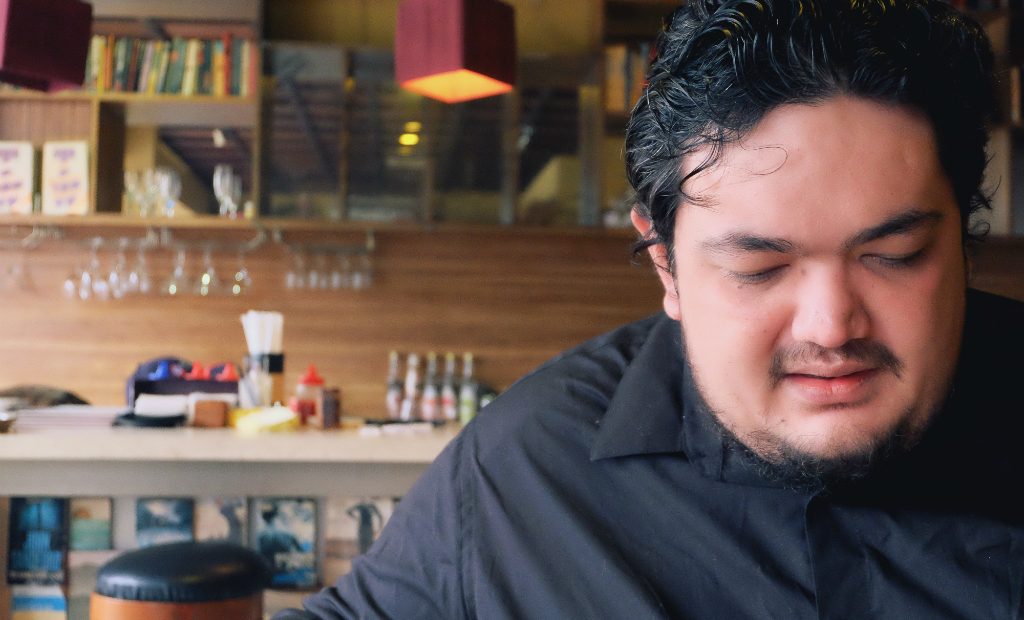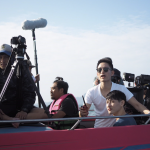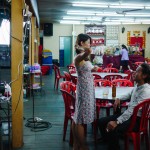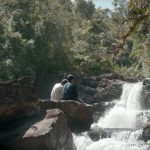By David Pountain
Watch Parts of the Heart on FilmDoo
On record as a passionate proponent of low-budget cinema, American-Indonesian writer-director Paul Agusta’s last feature film was the decades-spanning Parts of the Heart, a coming-of-age drama that follows the life of the young gay Peter through a series of contrasting relationships that illustrate an evolving understanding of love and attraction against the backdrop of a changing Jakarta.
Speaking to FilmDoo, Agusta reflects on his work and shares some thoughts on the current condition of Indonesian cinema.
Parts of the Heart tracks a single life over the course of a few decades. Making this film, did you ever worry that this was too ambitious a story for the relatively low budget you had?
Not at all. Because the way I had structured it (8 different segments, 8 different actors playing Peter) allowed us to shoot one segment at a time, with long breaks in between to raise funds for the next segment. The whole filming process began in October of 2010 with The Game Kiss (Segment 2), and the last segment shot was in November of 2011.
Would you consider the film to be at all autobiographical in nature?
Yes. It’s about 80% autobiographical, with the other 20% being based not actual events, but more on actual emotions I have felt in relationships. Most of it, I tried to keep as close to the actual events as possible (including the dialogue to be as verbatim as I could remember it), with names changed to protect some real folks involved that were not entirely out of the closet.
At the same time, did you ever intend for the film to reflect Indonesian gay culture in general, and its surrounding attitudes?
That was never the intention. My intention was to tell the story of how my understanding of love, or how I see love to be, was shaped. The gay aspect was incidental, simply because I am gay. If I were straight, the movie would be about a straight guy learning about love. But because I am a gay man that grew up and lived most of his life in Indonesia, that aspect (along with the challenges that occur) became an inherent by-product of the storytelling.
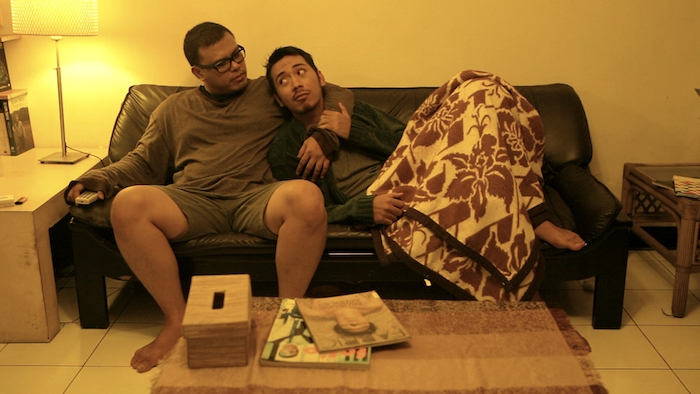
Would you consider there to be a fruitful scene for gay cinema in Indonesia or is your film an exception?
Not fruitful at all. There are only a small handful of queer films made here, and even a smaller number of out queer filmmakers. And most of the queer-themed films (mostly done by hetero directors) are still mired in stereotypes, or drowning in victim mentality (“I’m queer, my life is oh so tragic, pity me, I will die alone” type of bullshit), or at worst, condemning of LGBTQ life.
I would say that my film is probably an exception, because it is the first queer feature made in Indonesia that isn’t about being queer. It’s about people who simply happen to be queer, but their queerness does not define their life story or who they are as people.
The recent popularity of The Raid films from Welsh director Gareth Evans and the documentaries of American director Joshua Oppenheimer seem to have brought increased international attention to Indonesia among film fans. Do you feel that local film scenes benefit much from the success of outside directors working in the country, or does their success have little wider effect on home-grown cinema?
Well, as a half-American, half-Indonesian with an American passport living here on Permanent Resident status, most folks don’t exactly view me as an entirely “local” filmmaker. But I personally feel that the only thing American about me is my slightly Caucasian skin and my ability to speak English better than most Indonesians. Gareth’s films have definitely had an effect; the popularity of The Raid has certainly influenced the style of filmmaking that most of the young kids here are engaging in. And Joshua’s communist-themed films have definitely set a fire under our documentary filmmakers to make documentaries on subjects previously deemed too controversial or even dangerous; it injected a much needed dose of courage in our documentarians.
What projects are you working on at the moment?
I’m currently in pre-production of my 4th feature film, a quiet contemplative drama called Daysleepers. We shoot in June. And I also have two more scripts waiting in line to be made right after I’m done with Daysleepers. One is a comedy and one is a horror film.

